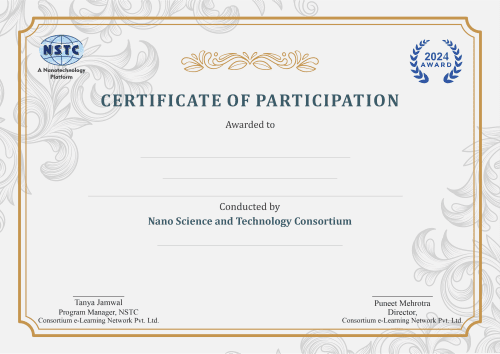
CRISPR-Cas Genome Editing: Tools & Techniques
Empower Your Future with Precision Genome Editing: Master the CRISPR-Cas9 Technology
Skills you will gain:
About Workshop:
CRISPR-Cas9 has transformed the landscape of genetic engineering, offering unprecedented precision and efficiency in genome editing. This workshop delves into the foundational principles of CRISPR-Cas9, exploring its historical development, molecular mechanisms, and the wide array of tools and techniques utilized in genome editing. Participants will gain a comprehensive understanding of the entire workflow, from designing guide RNAs to analyzing edited cells.
Throughout the workshop, learners will engage in theoretical and knowledgeable sessions, allowing them to apply theoretical knowledge in practical scenarios. The curriculum also covers ethical considerations, regulatory frameworks, and the potential impact of genome editing on various sectors, including biotechnology, agriculture, and medicine. By the end of the workshop, participants will be equipped with the skills and knowledge to pursue careers in genetic engineering and related fields, driving innovation and contributing to significant scientific advancements.
Aim: The aim of the “CRISPR-Cas Genome Editing: Workflow, Tools and Techniques” workshop is to provide participants with a thorough understanding of CRISPR-Cas9 technology. This workshop aims to equip learners with the necessary skills to utilize CRISPR-Cas9 for various genetic engineering applications, enabling them to contribute effectively to advancements in biotechnology, medicine, and agriculture.
Workshop Objectives:
- Understand the molecular mechanisms and principles of CRISPR-Cas9 genome editing.
- Gain proficiency in designing and implementing CRISPR-Cas9 experiments.
- Explore the ethical and regulatory aspects of genome editing.
- Apply CRISPR-Cas9 technology to real-world problems in various industries.
- Develop critical thinking and problem-solving skills in genetic engineering.
What you will learn?
Day 1: CRISPR-Cas Foundations & Applications
- Introduction to CRISPR-Cas: Mechanisms, types (Cas9, Cpf1/Cas12)
- Tools for Design: CHOPCHOP, CRISPRscan, GuideSeq
- Applications in Research: Basic, translational research, gene therapy
- Mini Task: Design guide RNA using CHOPCHOP and predict off-targets
Day 2: Workflows, Challenges & Troubleshooting
-
Experiment Design: Guide RNA design using Benchling, Geneious
- Delivery Tools: Lipofectamine, Neon Transfection, viral vectors
- Validation Tools: CRISPResso, Sanger sequencing, NGS
- Challenges: Off-target effects (using CCTop), low efficiency, delivery hurdles
- Mini Task: Analyze editing efficiency with CRISPResso
Day 3: Advanced Techniques, Ethics & Regulations
- Gene Activation/Repression: CRISPRa (SunTag), CRISPRi (dCas9-KRAB)
- In Vivo Editing Tools: Synthego CRISPR kits, AAV vectors
- Ethical & Regulatory Issues: Navigating FDA, EMA, WHO regulations
- Mini Task: Research CRISPR-based clinical trials on ClinicalTrials.gov
Mentor Profile
Fee Plan
Important Dates
16 Jan 2026 Indian Standard Timing 07:00 PM
16 Jan 2026 to 18 Jan 2026 Indian Standard Timing 08:00 PM
Get an e-Certificate of Participation!

Intended For :
- Undergraduate degree in Molecular Biology, Genetics, Biotechnology, or related fields.
- Professionals in the biotechnology, pharmaceutical, or agricultural industries.
- Researchers and scientists with a keen interest in genetic engineering and genome editing technologies.
Career Supporting Skills
Workshop Outcomes
- Mastery of CRISPR-Cas9 genome editing techniques.
- Ability to design and execute genome editing experiments.
- In-depth understanding of ethical and regulatory considerations.
- Proficiency in analyzing and interpreting genetic data.
- Preparedness for careers in genetic engineering and biotechnology.
